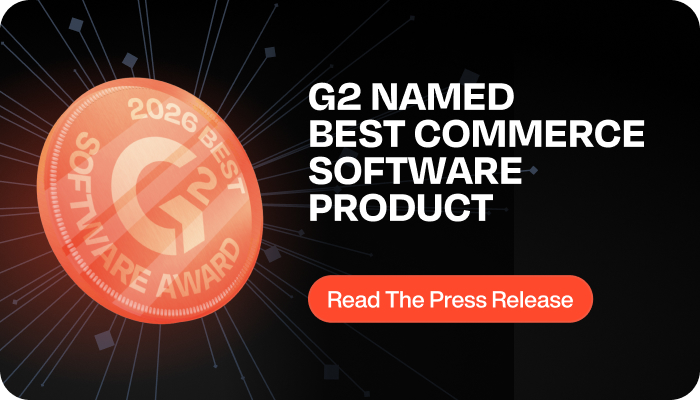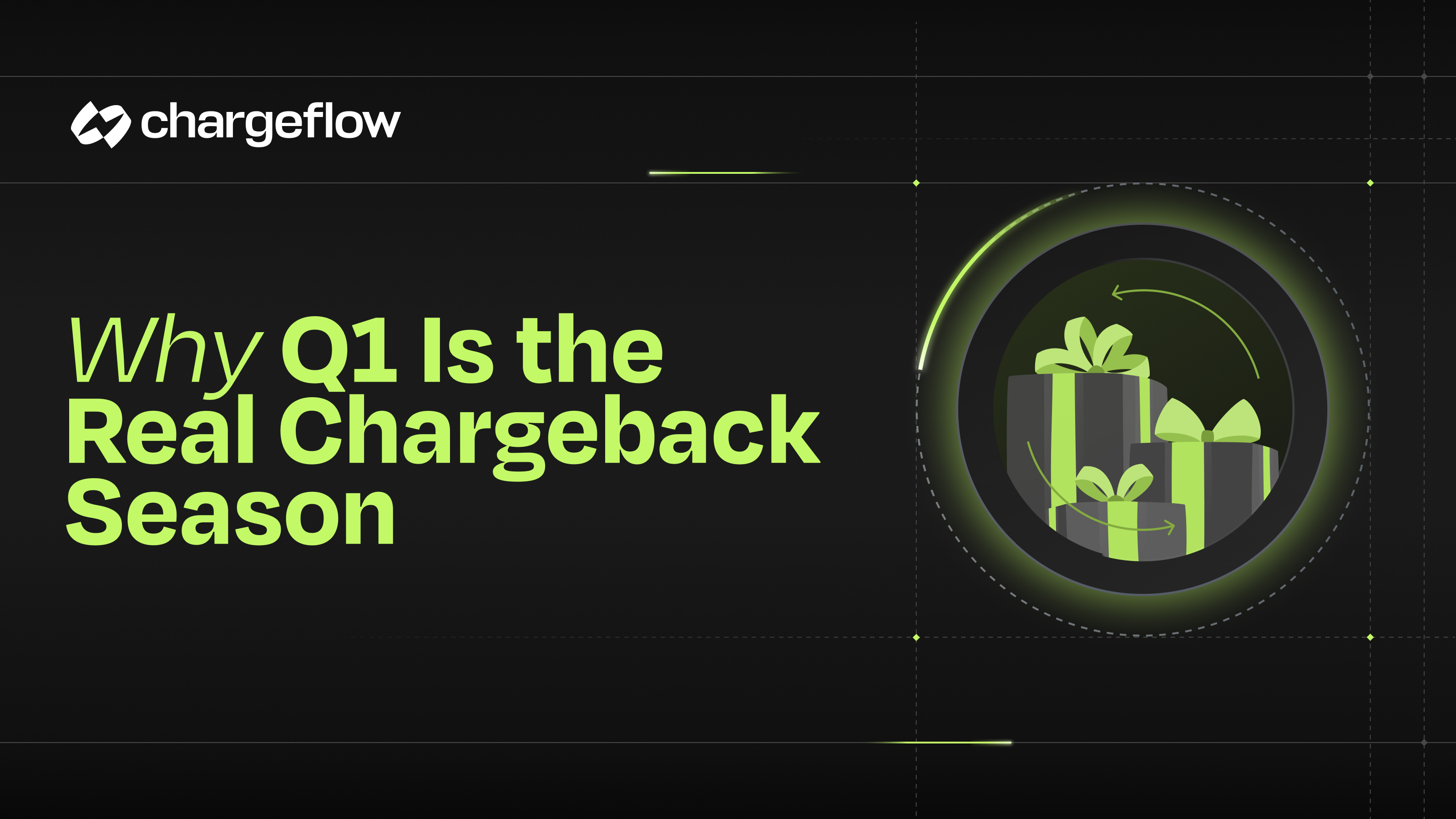Unmasking Black Friday Fraud: Protect Yourself and Shop with Confidence

Chargebacks?
No longer your problem.
Recover 4x more chargebacks and prevent up to 90% of incoming ones, powered by AI and a global network of 15,000 merchants.
Ensure a fraud-free Black Friday with the help of financial experts. Protect your hard-earned money while enjoying the best deals. Act now!
Welcome to the dark side of Black Friday, where shoppers are lured into a web of deceit and deception. As the annual shopping extravaganza approaches, it's crucial to arm yourself with knowledge and awareness to protect against the lurking threat of Black Friday fraud.
In this article, we will uncover the hidden dangers, expose the various types of fraud, and provide you with essential tips to navigate this treacherous landscape.
By the end, you'll be equipped with the tools necessary to shop with confidence and safeguard your hard-earned money. So, fasten your seatbelt and prepare to dive into the unmasking of Black Friday fraud.
Types of Black Friday Fraud
Black Friday is a major shopping holiday, and with that comes an increase in fraudulent activity. Here are some of the most common types of Black Friday fraud:
- Non-delivery scams: These scams involve the seller promising to deliver an item but never actually doing so. The victim may be sent a fake tracking number or a confirmation email, but the item never arrives.
- Gift card scams: In this scam, the victim is tricked into buying a gift card from a fake website or seller. The gift card is then used by the scammer to make purchases.
- Fake charity scams: These scams involve the scammer posing as a legitimate charity and asking for donations. The victim may be sent a fake email or text message that appears to be from the charity, or they may be contacted by a phone scammer who claims to be from the charity.
- Fake website scams: These scams involve the creation of fake websites that look identical to the websites of legitimate retailers. The victim is then tricked into entering their personal information or credit card details on the fake website, which is then stolen by the scammer.
- Phishing scams: Phishing scams involve the scammer sending emails or text messages that appear to be from a legitimate source, such as a bank or retailer. The email or text message will often contain a link that, when clicked, will take the victim to a fake website that looks like the real website. Once the victim enters their personal information or credit card details on the fake website, the scammer can steal it.
Tips for Avoiding Black Friday Fraud
When it comes to Black Friday, online shopping offers convenience and great deals. However, it's crucial to protect yourself from potential scams. Here are some tips for secure online shopping:
Use Trusted Websites and Retailers
Stick to reputable online retailers that you know and trust. Be cautious of unfamiliar websites that promise unbelievable discounts. Stick to well-known platforms like Amazon, Walmart, or Best Buy.
Verify the Website's Security Measures
Before entering any personal or financial information, make sure the website has proper security measures in place. Look for the padlock symbol in the address bar and ensure the web address begins with "https" instead of "http."
Safeguarding Personal Information
Never share more personal information than necessary. During the checkout process, only provide the required details such as your name, shipping address, and payment information. Avoid sharing sensitive data like your social security number or driver's license information.
Research Brand Authenticity
Before making a purchase, research the brand to ensure its authenticity. Check the official website or contact the brand directly to verify authorized retailers. Look out for misspellings, poor-quality packaging, or unusually low prices.
Inspect Packaging and Labels
Counterfeiters often overlook small details. Examine the packaging for signs of tampering, incorrect logos, or poor-quality printing. Pay close attention to labels, tags, and serial numbers. If anything seems suspicious, it's best to avoid the purchase.
Purchase from Authorized Retailers
To minimize the risk of buying counterfeit products, stick to authorized retailers. Avoid purchasing items from unknown sellers on online marketplaces, as they may be selling counterfeit or knockoff versions.
Beware of Skimming Devices
When using your credit or debit card, be cautious of skimming devices at ATMs or payment terminals. Inspect the card reader for any suspicious attachments or loose parts. Cover the keypad when entering your PIN to prevent onlookers from stealing your information.
Strengthening Passwords and Authentication
Ensure your online accounts have strong and unique passwords. Use a combination of uppercase and lowercase letters, numbers, and symbols. Enable two-factor authentication whenever possible to add an extra layer of security.
Monitoring Bank and Credit Card Statements
Regularly monitor your bank and credit card statements for any unauthorized transactions. If you notice anything suspicious, report it immediately to your financial institution. Prompt action can minimize the damage caused by identity theft.
Reading the Fine Print
Carefully read the terms and conditions of any deals or offers. Pay attention to expiration dates, exclusions, and any additional charges. Don't solely rely on flashy headlines; understand the details before making a purchase.
Comparing Prices and Reviews
Before jumping into a deal, compare prices across different platforms. Don't be swayed by a single retailer's claim of offering the lowest price. Additionally, read customer reviews and ratings to gauge the authenticity and quality of the product.
Reporting Suspected Fraudulent Practices
If you come across a suspected fraudulent practice, report it to the appropriate authorities. Contact your local consumer protection agency or file a complaint with the Federal Trade Commission (FTC). Your action can help prevent others from falling victim to the same scam.
What to Do if You're a Victim of Black Friday Fraud
If you are a victim of Black Friday fraud, there are a few things you can do to protect yourself:
- Report the fraud to the company involved: If you made a purchase from a legitimate retailer, they will be able to investigate the fraud and help you get your money back.
- File a police report: This will help you document the fraud and may help law enforcement catch scammers.
- Contact your credit card company: They will be able to cancel your credit card and issue you a new one with a new number. This will help protect you from further fraud.
- Place a fraud alert on your credit report: This will make it more difficult for someone to open a new account in your name.
- Monitor your credit report for any unauthorized activity: You can do this for free by visiting annualcreditreport.com.

Chargebacks?
No longer your problem.
Recover 4x more chargebacks and prevent up to 90% of incoming ones, powered by AI and a global network of 15,000 merchants.
















































.png)








